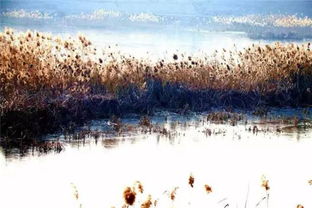Content:
Fishing in the fields is a serene and rewarding experience that offers anglers a unique setting to enjoy their hobby. Whether you're targeting species like carp, catfish, or even the occasional wild trout, mastering the art of fishing in the fields requires a blend of patience, knowledge, and the right techniques. Here's a comprehensive guide to help you become a field fishing pro.
Choosing the Right Spot
The first step in successful field fishing is to choose the right spot. Look for areas with clear signs of fish activity, such as visible feeding patterns or signs of burrowing, like in the case of carp. Fields with slow-moving water, like ditches or shallow streams, are often prime locations for fish to congregate. Here are some tips for selecting the perfect spot:
- Observe the Landscape: Look for areas where water meets land, as these spots tend to attract fish looking for food or cover.
- Check for Vegetation: Fish often seek shelter among plants and grasses. Look for areas with dense vegetation or reeds.
- Analyze the Bottom: The type of bottom can significantly affect fishing success. Sand and gravel bottoms are ideal for most species.
- Be Mindful of Seasonal Changes: Fish behavior changes with the seasons. In spring, look for spawning areas, while in summer, fish might seek cooler waters.
Setting Up Your Gear

Before you start fishing, ensure your gear is suitable for field conditions. Here are some essential tips for setting up your equipment:
- Use a Rod and Reel: A medium to heavy-duty rod and reel combination is ideal for field fishing, as it can handle the weight of larger fish and the occasional snag.
- Choose the Right Line: Monofilament or fluorocarbon line is best for field fishing due to its strength and ability to blend in with the environment.
- Select Appropriate Lures and Baits: Depending on the species you're targeting, choose lures or baits that mimic the natural prey of the fish. For example, for carp, bread or corn may be effective, while for catfish, live bait like worms or minnows might work better.
- Keep It Simple: Don't overcomplicate your setup. A simple rig with a weight, a swivel, and a hook is often the most effective.
Mastering the Cast
One of the most crucial skills in field fishing is casting. Here's how to improve your casting technique:
- Practice Your Grip: Hold the rod with a comfortable grip, ensuring a firm but not tense hold.
- Learn the Backcast: Start by lifting the rod back behind you, then sweep it forward with a smooth, controlled motion.
- Control Your Power: Adjust the power of your cast based on the distance and type of water you're fishing in.
- Be Mindful of the Wind: Wind can significantly affect your cast. Adjust your technique to compensate for crosswinds or strong gusts.
Fishing Techniques
Once you've cast your line, it's time to focus on the fishing techniques. Here are some key strategies:
- Patience is Key: Field fishing often requires patience. Wait for the fish to bite rather than constantly reeling in and out.
- Use a Variety of Baits: Experiment with different baits and lures to see what works best in your chosen spot.
- Adjust Your Rigging: Depending on the species and conditions, you may need to adjust the weight of your bait or the depth of your hook.
- Stay Quiet: Fish are sensitive to noise. Keep your movements and conversation to a minimum to avoid spooking them.
Safety and Etiquette
Lastly, always practice safety and good fishing etiquette:
- Respect the Environment: Leave no trace of your presence. Dispose of trash properly and avoid damaging the natural habitat.
- Be Prepared: Carry a first aid kit, a flashlight, and a whistle in case of emergencies.
- Follow Local Regulations: Be aware of any fishing regulations or restrictions in the area you're fishing.
In conclusion, fishing in the fields is a rewarding experience that can be enhanced by mastering the right techniques. By choosing the right spot, setting up your gear appropriately, mastering your casting skills, and employing effective fishing techniques, you'll be well on your way to becoming a successful field angler. Remember to practice safety and respect the environment, and you'll enjoy many peaceful and productive days on the water.












